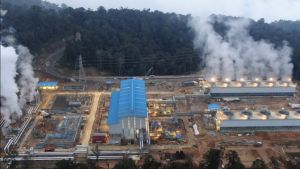JAKARTA - PT Bank Mandiri Tbk (Persero) (BMRI), explained that Indonesia's economic performance in the third quarter of 2023 was recorded at 4.94 percent or slower than the second quarter of 2023 which was 5.17 percent.
Bank Mandiri Chief Economist Andry Asmoro assessed that although the Indonesian economy fell in the third quarter. However, consumption growth is still quite healthy, in line with the investment growth that is still accelerating, especially building investments and the completion of several infrastructure projects.
Andry said consumption towards the end of the year showed an increase. Where in early December, the Mandiri Lending Index (MSI) recorded 188.2, this figure shows that public spending was 88.2 percent higher than the period before the pandemic in January 2020.
Meanwhile, on a monthly basis, the value of public spending in November 2023 recorded 177.8 higher than 40.1 percent compared to the same month last year.
According to Andry, based on the region, spending in all regions shows acceleration, except for Bali and Nusa Tenggara.
Furthermore, in terms of income groups, Andry said that public spending from the lowest group or consumers with savings balances below Rp. 1 million began to show a slowdown.
"monthly, the lowest group spending in November is slightly lower than in October 2023," he explained in the virtual 2023 Summary Mandiri Economic Outlook, Tuesday, December 19.
On the other hand, Andry said that the decline in the level of group savings that had been eroded since May had begun, but now it has begun to slope.
Andry said this shows that reduced savings from the lower class of people began to have an impact on their spending. Meanwhile, the middle class with savings balances of IDR 1 million to 10 million is relatively stable and is in the range of 166.4.
According to Andry, mobility-related sectors such as transportation, warehousing, hotels, restaurants, information and communication are still the pillars of economic growth in the third quarter of 2023.
"We see that in the fourth quarter, mobility-related sectors will benefit when entering the Christmas and New Year 2024 holiday periods," he explained.
On the other hand, commodity-related sectors in the third quarter and fourth quarter of 2023 experienced growth deseleration due to price-price corrections in the international market.
However, Andry explained that commodity prices in 2023 and 2024 are still at a profitable level and the important key to business activities in the commodity sector is to make efficiency to maintain profit margins.
SEE ALSO:
Meanwhile, the export-oriented manufacturing sector in 2023 and 2024 will continue to be under pressure due to the weakening of the global economy.
Andry said that domestic market-oriented industries, such as the transportation, chemical and pharmaceutical and food-drinking industries, are still relatively prospective in utilizing resilience from domestic demand.
"The industries related to downstreaming are the basic metal processing industry, still growing high, although they are still delegated due to the decline in commodity prices," he said.
The English, Chinese, Japanese, Arabic, and French versions are automatically generated by the AI. So there may still be inaccuracies in translating, please always see Indonesian as our main language. (system supported by DigitalSiber.id)











